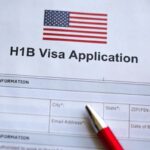Are you dreaming of migrating to the land down under? With its vibrant cities, stunning landscapes, and promising career opportunities, Australia beckons individuals seeking adventure-filled lives.
However, before you pack your bags and head for Bondi Beach or Sydney’s bustling cityscape, you must navigate a crucial checkpoint: the skill assessment.
Why Skill Assessments Matter?
Just as you aspire for a better life in Australia, the country seeks to ensure that incoming migrants contribute positively to its workforce.
Australia wants to ensure that immigrants possess the skills and qualifications needed to contribute positively to the country. The skill assessment process verifies if your skills meet the Australian standards for your chosen profession.
It is worth mentioning here that Obtaining a suitable skills assessment is mandatory for some Australia visa subclasses (and streams) and may be requested for others.
Who Conducts the Skill Assessments?
Australia hosts various assessment bodies, each authorized to evaluate specific professions. Understanding which authority pertains to your occupation is the first step towards a successful migration journey.
Here are some prominent assessment bodies and the professions they scrutinize:
| Engineers Australia | Assesses engineering occupations |
| Australian Computer Society (ACS) | Evaluate qualifications and work experience for ICT occupations |
| Australian Nursing and Midwifery Accreditation Council (ANMAC) | Reviews nursing and midwifery occupations |
| VETASSESS | Assesses a wide range of skilled occupations, including trades and technical professions |
| Institute of Public Accountants (IPA) | Evaluates accountants and finance professionals |
Submitting Your Application
Once you’ve identified the relevant assessment authority, it’s time to gather your documents, including experience letters and educational qualifications. Ensure all required fees are paid before submitting your application.
Attention to detail is key; meticulously follow instructions and double-check document uploads to avoid delays. Here are some more tips:
- Prepare beforehand: Collect all documents before starting the online application.
- Follow instructions: Carefully read and follow the application instructions.
- Double-check uploads: Ensure all documents are uploaded correctly.
- Allocate time: Set aside sufficient time to complete the application thoroughly.
The Waiting Game
The assessment process can take several weeks, depending on the chosen authority. While waiting, you can:
- Review the application: Double-check for any errors or missing information.
- Gather additional documents: If needed, prepare any supplementary documents requested by the authority.
- Stay patient: Understand that the process takes time and avoid unnecessary inquiries.
Receiving Your Results
The outcome of your skill assessment will be communicated formally. A positive outcome signifies that your skills meet Australian standards, allowing you to proceed with the next steps in your migration journey.
A Negative Outcome: Not the End
A negative assessment will detail areas where your skills fall short. This information can help you:
- Improve your skills: Consider additional training or experience to meet the required standards.
- Appeal the decision: If you believe the assessment is incorrect, you can appeal the decision.
- Explore other options: Consider applying for a different occupation with a different assessing authority.
FAQs
Australia’s skill assessment ensures that your qualifications and experience meet the country’s standards for your chosen profession. It helps them determine if you can contribute positively to the workforce.
Different organizations, each specializing in specific professions, conduct the assessments. Examples include Engineers Australia for engineers, ACS for IT professionals, and ANMAC for nurses and midwives.
The required documents vary depending on the profession and assessing authority. Generally, you’ll need experience letters, educational certificates, and relevant fees.
The process can take several weeks, depending on the chosen authority. It’s essential to be patient and avoid bombarding them with inquiries.
A negative outcome will explain where your skills fell short. You can use this information to improve your skills, appeal the decision if you believe it’s incorrect, or consider applying for a different occupation with a different assessing authority. Remember, it’s not the end of the road!
Beyond the Assessment
A positive skill assessment is a valuable step towards your Australian migration journey. It can be included in your Expression of Interest (EOI) when applying for a migration visa. Remember, even if you encounter setbacks, there are always options to move forward.
So, stay focused, keep improving, and don’t give up on your dream of living in Australia!
Follow and connect with us on Facebook, Twitter, LinkedIn, Instagram and Google News for the latest travel news and updates!



